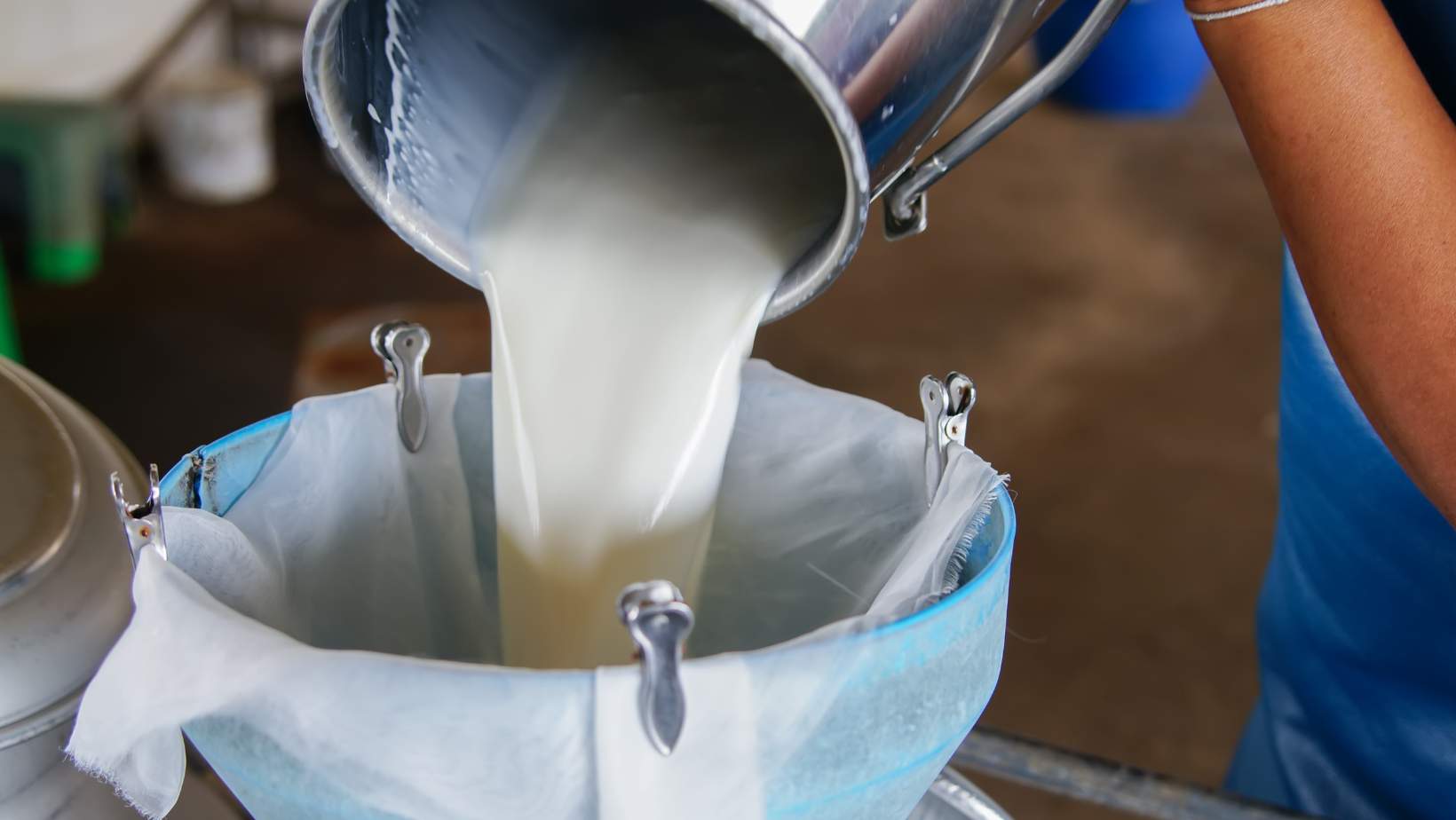For generations, we’ve been told that milk does a body good. Celebrities, athletes, and even government officials proudly sport milk mustaches, reinforcing dairy as a superfood essential for strong bones and optimal health. However, one top doctor is pushing back against this popular belief, arguing that milk is meant for calves – not humans. What does the science really say?
The USDA Food Pyramid: Serving Dairy Industry Interests Over Public Health?
Dr. Walter Willett, esteemed nutrition expert at Harvard School of Public Health, calls the USDA’s recommendation to drink 3 glasses of milk a day “utterly ridiculous.” He contends that the food pyramid is based more on industry interests than sound science. Even members of the pyramid advisory committee have industry ties, creating an inherent bias.
The pyramid’s vague, confusing guidelines downplay the dangers of sugar and processed foods while promoting questionable advice like drinking more milk. Dr. Willett asserts that some recommendations are not only unhelpful, but potentially harmful. So what does he say about dairy?
6 Eye-Opening Reasons to Avoid Dairy, Based on Scientific Evidence
1. Milk Doesn’t Strengthen Bones and May Even Raise Fracture Risk
Contrary to dairy industry claims, research shows no fracture prevention benefit from drinking milk. In fact, the Nurses’ Health Study found that dairy may increase fracture risk by 50%. Countries with the lowest dairy and calcium intake have the lowest rates of osteoporosis.
2. Calcium Supplements Are More Effective Than Milk for Bone Health
Studies indicate that calcium supplements, but not dairy products, may reduce colon cancer risk. Calcium intake isn’t as critically important for bone health as once thought. Vitamin D appears to be much more protective against fractures.
3. Dairy May Increase Cancer Risk, Especially Prostate Cancer
Research suggests that higher intakes of dairy products and calcium may raise a man’s prostate cancer risk by 30-50%. Dairy consumption also increases levels of insulin-like growth factor-1, a known cancer promoter.
4. 75% of the World’s Population Can’t Properly Digest Milk
Lactose intolerance affects about 3/4 of people worldwide. Symptoms like bloating, gas, and diarrhea are common after consuming dairy products. Our bodies simply weren’t designed to digest milk past infancy.
5. Dairy Is Linked to Many Health Problems
Milk has been connected to increased risk of:
- Allergies
- Sinus issues and ear infections
- Type 1 diabetes
- Chronic constipation and anemia in children
- Irritable bowel syndrome
6. Saturated Fat in Dairy Promotes Heart Disease
Milk is loaded with artery-clogging saturated fat and has been linked to increased risk of heart disease. Even the “healthier” raw, organic milk can’t sidestep dairy’s potential harms. From an evolutionary perspective, milk is an odd choice for adult humans.
What the Federal Trade Commission Found About Milk Ads
Milk mustache ads have claimed that dairy benefits sports performance, promotes weight loss, prevents osteoporosis, and more. Yet when the FTC asked the USDA to investigate these assertions, the response was clear: there’s no scientific proof backing these claims.
The Bottom Line
The wisest choice may be eliminating dairy altogether and observing how your body responds. Dr. Millett’s suggestions:
- Get calcium from plant sources like leafy greens, tahini, sea vegetables, sardines, or salmon with bones
- Focus on getting enough vitamin D for bone health
- If you do eat dairy, choose raw, organic, fermented options like yogurt or kefir
Frequently Asked Questions
Is dairy necessary for getting enough calcium?
No. Many plant foods are excellent calcium sources, including leafy greens, sesame seeds, sea vegetables, and canned fish with bones. Most people can get ample calcium without dairy.
Don’t we need dairy for strong bones?
Surprisingly, countries with the highest dairy intake also have the highest rates of osteoporosis. Dairy doesn’t appear to prevent fractures and may even increase risk. Vitamin D is more crucial for bone density.
Is raw milk a healthier option than conventional dairy?
While raw, organic milk avoids some issues like pesticides, hormones, antibiotics, homogenization and pasteurization, it doesn’t eliminate dairy’s other potential health risks. Plant-based options are best for most people.
